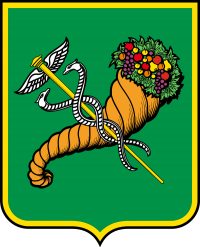Ukraine – European Union: architecture and dynamics of integration
“Ukraine – European Union: architecture and dynamics of integration”
Panel discussion of the VII Kharkiv International Legal Forum
Date: 25 September 2023
12:00 – 15:00 (Kyiv time)
On-line
Supported by:
Since 1993, membership in the European Union has been identified as one of the key priorities of Ukrainian diplomacy. Since then, Ukraine has taken a course towards European integration, and the Ukrainian people strongly supported this vector in 2014. The main achievement in the relations of the parties is the entry into force of the Association Agreement 2014, which became a signpost for large-scale political and legal reforms on the way to EU membership and laid the legal foundations for the further approximation of Ukrainian legislation to the EU acquis. The work was aimed at ensuring that Ukraine is able to ensure the stability of institutions that guarantee democracy, the rule of law, human rights and respect and protection of minorities, the functioning of the principles of a functioning market economy and withstand competition and resist market forces in the EU, as well as prove the ability to take on itself and effectively fulfill the obligations of membership, including commitment to the objectives of political, economic and monetary union.
The full-scale aggression of the Russian Federation against Ukraine became a huge challenge not only for Ukraine, but also for the entire civilized world. At the same time, the war accelerated the European integration processes in Ukraine, which proved the indisputable fact that our country is part of a large European family, as Ukrainians are ready to defend European values at the cost of their own lives. It became logical for Ukraine to receive the status of a candidate state for joining the European Union on June 23, 2022. Such a lightning-fast decision regarding the prospect of Ukraine joining the EU became possible thanks to the effective work of the Ukrainian state apparatus, aimed at the proper fulfillment of obligations under the Association Agreement, and the holding of hundreds of consultations with international partners. Undoubtedly, this success depends on the coordinated work of all state bodies of Ukraine, especially the Government and the Parliament. At the same time, an active civil society and its support for European integration play a major role in Ukraine.
Ukraine initiated an unprecedented process of self-checking of national legislation for compliance with current EU law to identify inconsistencies and gaps that must be eliminated in order to prepare Ukraine for negotiations on accession to the European Union. The first stage of this self-screening was carried out, in which more than 80 state authorities and state institutions were involved in 34 negotiation chapters. About 28,000 legal acts have been analized and it has been determined that about 3,000 acts are subject to implementation into Ukrainian legislation. 1,400 acts have been fully implemented.
Despite the fact that Ukraine has already set many European records for the successful implementation in a short time, the country still has a lot of work to do, which it must do “perfectly”. In October 2023, the European Commission should provide its recommendations on the opening of negotiations on Ukraine’s accession to the EU, which will be a valid assessment of the work done.
In this context, the panel discussion aims to become an open platform for the unification of all circles of European integration interests, professional discussion of the completed European integration path and the future development strategy of Ukraine, which will lead it to the EU membership.
The thematic design of the panel discussion makes it possible to involve specialists and representatives of state bodies of Ukraine, on the one hand, and representatives and experts of states that have already successfully completed the path to joining the EU, on the other hand. Such synergy will help to provide answers to the questions facing the Ukrainian public and private sectors for the successful implementation of European integration tasks.
The panel discussion aims to highlight the following issues:
- does the Association Agreement feet for Ukraine’s candidate status in the EU;
- results and challenges of the implemention of the EU legislation in Ukraine;
- peculiarities of the processes of European integration of Ukraine in the conditions of a full-scale war of the Russian Federation against Ukraine;
- experience of the European integration path of the EU Member States;
- the role of European integration in the process of transformations and reconstruction of Ukraine;
- readiness of the EU for enlargement, etc.
Moderator:
Tetyana Komarova, Doctor of Jur. Sciences (Dr. hab), Professor, Head of the Department of the European Union Law, Yaroslav Mudryi National Law University.
Program of the event
1st discussion on Ukraine’s accession to the EU process
12:00-13:00
Daniel Sarmiento, Ukrainian accession to the EU outside the standard procedure of Art. 49 of the TEU
Оleksandra Сhubinidze, Ukraine’s European integration progress: a plan for EU accession negotiations and assessment of Ukraine’s implementation of the acquis сommunautaire
2nd discussion on the role of judiciary in the process of European integration
13:00-14:00
Adam Lazowski, The role of the CJEU case law in law approximation
Olesia Radyszewska, Readiness of Ukrainian courts for Europeanization
Anna-Adamska Gallant, The judicial reform in Ukraine as a part of eurintegrational process
3rd discussion on the Europeanization of Ukraine’s legal system
14:00-15:00
Ksenia Smyrnova, Labyrinths of Europeanization of law enforcement practice in Ukraine
Sofiya Vydra, Preparation for the negotiation stage: main cues and highlights from the self-screening process
Tetiana Anakina, Olesia Tragniuk, The problems of adaptation of Ukrainian national legislation to the EU acquis (based on the results of self-screening of some legal acts)
SPEAKERS

Prof. Adam Lazowski (University of Westminster) is one of the leading academics and experts specialising in the EU enlargements, past and future and, more generally, in EU external relations. He has extensively written about the previous enlargement rounds, including a commentary on the Bulgarian and Romanian Accession Treaty and a commentary on the Croatian Accession […]

Daniel Sarmiento is a Professor of EU and Administrative Law at the University Complutense of Madrid and Editor-in-Chief of “EU Law Live”. He is also a practising lawyer with an extensive litigation record in the Court of Justice of the EU and a frequent speaker and contributor on EU Law matters. He was an advisor […]
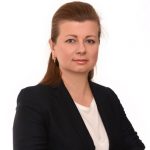
Prof. Anakina has practical experience with EU projects and legal assistance of the governmental institutions of Ukraine. Member of the Jean Monnet Chair “In-depth Study of EU Values and Law: Ukrainian Context”. From 2015 to 2019 she was an adviser to the Regional Branch of the Secretariat-General of the European Commissioner for Human Rights at […]

PhD, head of the Judicial C0mponent of EU Pravo Justice Ukraine, attorney at law, expert in international humanitarian law, former judge in Kosovo.

Key national expert in EU funded Project Prav–Justice, component of Justice sector policy and coordination, lawyer, master in Ukrainian and EU law.

Doctor of juridical of Sciences, professor, vice-rector for scientific and pedagogical work (international society) of Kyiv National University named after Taras Shevchenko. The Head of the Section of the Jean Monet Educational Center of Taras Shevchenko National University of Ukraine. The author of nearly 200 scientific and scientific-methodological works. Since the beginning of 2017, he […]

Associate Professor of the Department of European Union Law at Yaroslav Mudryi National Law University, PhD in Law, Professor, member of the Jean Monnet Chair “In-depth Study of EU Values and Law: Ukrainian Context”.
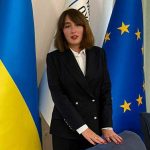
PhD, Representative of Government Office for Coordination on European and Euro-Atlantic Integration, Secretariat of the Cabinet of Ministers of Ukraine worked as expert in EU projects within several governmental institutions of Ukraine.
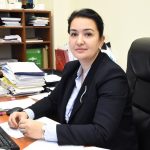
Judge of the Supreme Court, Doctor of Law, associate professor, professor of the Department of Service and Medical Law of the Kyiv Educational and Scientific Institute of Law of the Taras Shevchenkщ Kyiv National University.
MODERATOR

Doctor of Jur. Sciences (Dr. hab), Professor, Head of the Department of the European Union Law, Yaroslav Mudryi National Law University. Head of the Jean Monnet Chair “In-depth Study of EU Values and Law: Ukrainian Context”. Prof. Komarova for a long time explores judicial law of the European Union. She has more than 150 scientific […]
Fill form to finish the registration
Form is deprecated, please contact the webmaster to upgrade this form.
Thank you for registration!!
Dear Colleague,
Thank you for registering to attend the VIII-th Kharkiv International Legal Forum.
We look forward to your participation. An official invitation would soon be sent to your email. Any queries, please email to forum@nlu.edu.ua.
See you at VIII-th Kharkiv International Legal Forum on September 23-27, 2024!
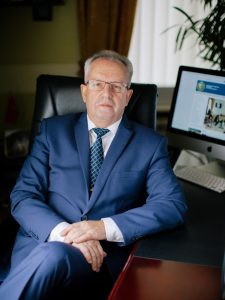
Co-Chairman of Organizing Committee
Rector of Yaroslav Mudryi National Law University
Anatoly Hetman



